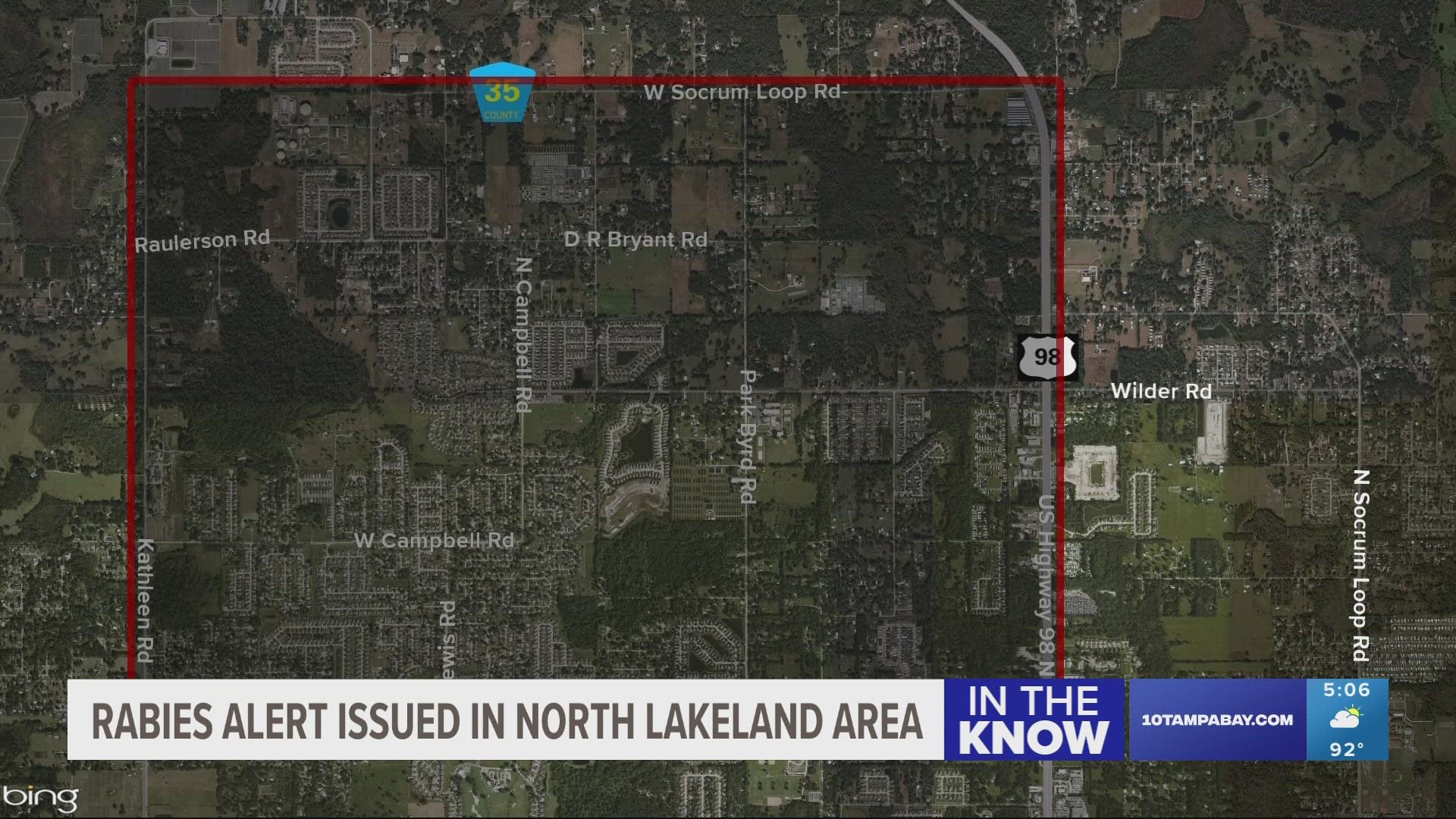LAKELAND, Fla. — The Florida Department of Health in Polk County issued a rabies alert for the north Lakeland area in response to a raccoon that tested positive this week, a news release explains.
Already this year, Polk County has now had three confirmed cases of rabies.
On Wednesday, July 26, a family dog in the Green Road area of unincorporated Lakeland reportedly fought with an aggressive raccoon. When the raccoon wouldn't let go of the dog, the dog's owner shot and killed it.
Results from a rabies test came back Tuesday and showed the raccoon was positive for rabies. According to Polk County Sheriff Grady Judd, the dog's injuries were only minor from the incident.
All people living in or visiting Polk County should be aware that rabies is being found in the wild animal population, according to health leaders. Other domestic animals are reportedly at risk if they are not vaccinated.
"The public is asked to maintain a heightened awareness that rabies is active in Polk County," the release reads in part. "Alerts are designed to increase awareness to the public.
"Please be aware that rabies activities can also occur outside the alert area."
The alert is set in stone for 60 days and the center of it includes boundaries such as:
- North boundary – West Socrum Loop Road
- South boundary – Duff Road
- East boundary – U.S. 98
- West boundary – Kathleen Road
Health leaders explain rabies is a disease of the nervous system and could be deadly to warm-blooded animals and even humans.
Humans who come in contact with the disease would need to get rabies-specific immune globulin and rabies immunization as treatment.
According to the FDOH, residents and visitors are advised to take precautions such as:
- Keep rabies vaccinations up to date for all pets and at-risk livestock.
- Do not allow your pets to run free. Follow leash laws by keeping pets and livestock secured on your property. If your pet or livestock is bitten by a wild animal, seek veterinary assistance for the animal immediately and contact Polk County Sheriff's Office Animal Control at (863) 499-2600.
- Support animal control in efforts to reduce feral and stray animal populations.
- Spay or neuter your pets to help reduce the number of unwanted pets that may not be properly cared for or regularly vaccinated.
- Do not handle, feed, or unintentionally attract wild animals with outdoor food sources such as uncovered trash or litter.
- Never adopt wild animals or bring them into your home.
- Teach children never to handle unfamiliar animals, wild or domestic, even if they appear friendly.
- Prevent bats from entering living quarters or occupied spaces in homes, churches, schools, and other similar areas, where they might come in contact with people and pets.
- Persons who have been bitten or scratched by wild or domestic animals should seek medical attention and report the injury to DOH-Polk at (863) 519-8300.

